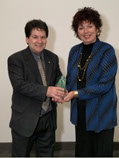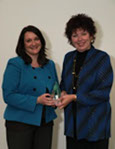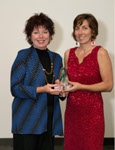
CONTACT




MEDIA RELEASE
FOR IMMEDIATE RELEASE SEPTEMBER 10, 2009
CAFA DISTINGUISHED ACADEMIC AWARDS, 2009
(EDMONTON) – The Confederation of Alberta Faculty Associations (CAFA), the provincial organization representing academic staff associations at the University of Alberta, the University of Lethbridge, and Athabasca University, is pleased to announce that Dr. Reginald Bibby, Board of Governors Research Chair in the Department of Sociology at the University of Lethbridge, has been chosen to receive the CAFA Distinguished Academic Award for 2009.
Dr. Sara Dorow, Associate Professor in the Department of Sociology and Director of the Community Service-Learning Program, University of Alberta, and Dr. Candace Nykiforuk, Assistant Professor in the School of Public Health, University of Alberta, will each be honoured with the CAFA Distinguished Academic Early Career Award.
The CAFA Distinguished Academic Award recognizes academic staff members who through their research and/or other scholarly, creative or professional activities have made an outstanding contribution to the wider community beyond the university.
The CAFA Distinguished Academic Early Career Award recognizes academic staff members who, at an early stage of their careers, through their research and/or other scholarly, creative or professional activities have made an outstanding contribution to the wider community beyond the university.
“The recipients of the CAFA Distinguished Academic Awards are being honoured by their peers,” notes Linda Bonneville, President of CAFA. “Through these awards, we wish to recognize and highlight exceptional contributions made by our colleagues, through their research, scholarly and creative activities, to the wider community beyond the academy. This year, we are proud to celebrate the achievements of Dr. Reginald Bibby, Dr. Sara Dorow, and Dr. Candace Nykiforuk, whose work has been exemplary in this respect.”
The CAFA Distinguished Academic Awards, 2009, will be presented at a banquet at the Shaw Conference Centre, Edmonton, on Thursday, September 17, 2009.
Media Enquiries:
John Nicholls, Executive Director, CAFA
Tel (780) 492-5630 e-mail john.nicholls@ualberta.ca
Slideshow



